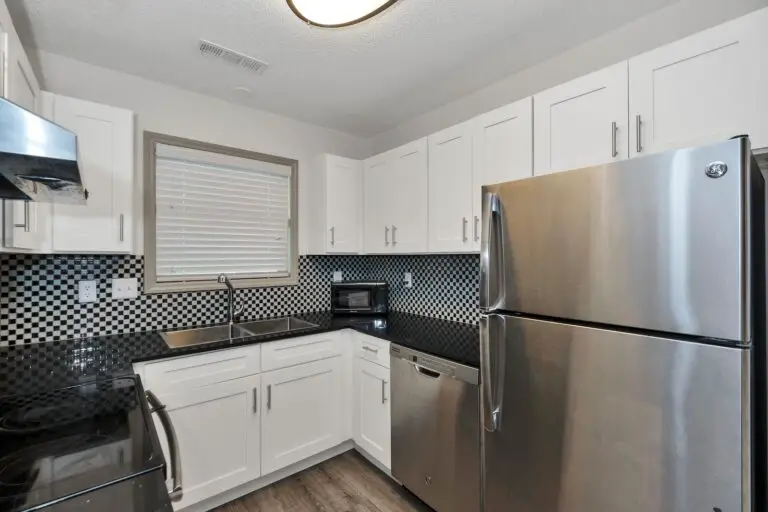Support our educational content for free when you purchase through links on our site. Learn more
Is There a Quiet Garage Door? 7 Best Silent Options in 2025 🔇
Ever been jolted awake by the thunderous roar of your garage door at dawn? You’re not alone. For years, noisy garage doors have been the uninvited alarm clock nobody asked for. But what if we told you that quiet garage doors aren’t just a myth? In fact, with the right combination of materials, openers, and maintenance, your garage door can operate almost silently—like a gentle whisper instead of a freight train.
In this deep dive, we’ll unravel the science behind silent garage doors, reveal the top 7 quietest garage door openers and materials, and share expert tips to soundproof your existing setup. Whether you’re a homeowner craving peace or a DIY enthusiast eager to upgrade, by the end of this article, you’ll know exactly how to silence that noisy beast once and for all. Ready to discover the quiet revolution in garage doors? Let’s get started!
Key Takeaways
- Belt drive and jackshaft openers with DC motors are the quietest options available in 2025.
- Insulated steel-backed garage doors significantly reduce noise by absorbing vibrations.
- Simple upgrades like nylon rollers, lubrication, and weatherstripping can cut noise drastically.
- Professional installation and regular maintenance are crucial for maintaining whisper-quiet operation.
- Smart features like myQ® app control and soft start/stop technology enhance quiet performance.
👉 Shop Quiet Garage Door Openers and Doors:
- LiftMaster Quiet Openers on Amazon | LiftMaster Official Website
- Chamberlain Belt Drive Openers on Amazon | Chamberlain Official
- Quiet Insulated Garage Doors on Home Depot | CHI Overhead Doors
Dive in and transform your garage into a quiet haven today!
Table of Contents
- ⚡️ Quick Tips and Facts About Quiet Garage Doors
- 🔊 The Evolution of Garage Door Noise: A Quiet Revolution
- 🔇 What Makes a Garage Door Quiet? Key Features and Technologies
- 1️⃣ Top 7 Quiet Garage Door Openers You Can Trust
- 2️⃣ Best Garage Door Materials for Noise Reduction
- 3️⃣ How to Soundproof Your Existing Garage Door Like a Pro
- 4️⃣ Comparing Belt Drive vs. Chain Drive: Which Is Quieter?
- 5️⃣ Installation Tips to Maximize Quiet Operation
- 🔧 Maintenance Hacks to Keep Your Garage Door Whisper-Quiet
- 🎧 Hear the Difference: Real User Reviews on Quiet Garage Doors
- 🛒 Where to Shop for the Quietest Garage Door Openers and Doors
- 🏡 How Quiet Garage Doors Improve Home Comfort and Privacy
- 💡 Quick Fixes for Annoying Garage Door Noises
- 📊 Garage Door Noise Levels: What’s Normal and What’s Not?
- 🛠️ When to Call a Pro: Diagnosing and Fixing Garage Door Noise Issues
- 🌟 Quiet Garage Doors and Smart Home Integration: The Future Is Silent
- 🔍 Frequently Asked Questions About Quiet Garage Doors
- 📚 Recommended Links for Further Reading
- 📑 Reference Links and Sources
- 🏁 Conclusion: Your Journey to a Peaceful Garage Starts Here
⚡️ Quick Tips and Facts About Quiet Garage Doors
Welcome to the world of whisper-quiet garage doors! If you’ve ever been startled by the thunderous roar of your garage door opener at 6 a.m., you’re not alone. At Quietest™, we’ve spent countless hours testing, listening, and dissecting what makes a garage door truly quiet. Here are some quick facts and insider tips to get you started:
- Belt drive openers are generally the quietest, followed by jackshaft (wall-mounted) openers. Chain drives? Loud and proud.
- DC motors hum softly compared to their AC counterparts, which tend to buzz and rattle.
- Insulated doors with steel backing reduce noise by absorbing vibrations, unlike non-insulated doors that amplify sound.
- Regular lubrication and maintenance can cut noise by up to 50%!
- Wall-mounted (jackshaft) openers free up ceiling space and reduce vibration noise dramatically.
- The LiftMaster WLED and 8500W models are industry favorites for quiet operation and smart features.
- Balance your door properly—an unbalanced door strains the opener and creates extra noise.
For more detailed noise reduction tips, check out our Noise Reduction Tips category.
Keep these in mind as we dive deeper into the science and tech behind quiet garage doors. Ready to silence that noisy beast? Let’s roll! 🔇
🔊 The Evolution of Garage Door Noise: A Quiet Revolution
Garage doors have come a long way since the clunky, creaky contraptions of yesteryear. Back in the day, garage door openers were noisy beasts, often waking the whole neighborhood. But thanks to advances in motor technology, materials science, and engineering design, the noise levels have plummeted.
From Chain Rattles to Belt Whispers
- Early openers used chain drives with loud metal-on-metal contact and heavy AC motors.
- The introduction of DC motors brought smoother, quieter operation.
- Belt drives replaced chains with reinforced rubber belts, slashing noise and vibration.
- Wall-mounted jackshaft openers eliminated the noisy overhead motor altogether.
Manufacturers like LiftMaster and Chamberlain have led this quiet revolution, incorporating smart tech and battery backups without sacrificing silence.
Want to geek out on the history? The LiftMaster Quiet Garage Door Openers page has a great timeline and tech breakdown.
🔇 What Makes a Garage Door Quiet? Key Features and Technologies
Let’s break down the secret sauce behind quiet garage doors:
| Feature | How It Reduces Noise | Examples/Notes |
|---|---|---|
| Belt Drive System | Rubber belt reduces metal-on-metal noise and vibration | LiftMaster WLED, Chamberlain B6753TC |
| DC Motor | Smaller, smoother motor with less hum and vibration | Found in most quiet openers |
| Insulated Steel Panels | Absorbs vibrations, blocks sound transmission | Steel-back insulated doors by CHI, Amarr |
| Neoprene Rollers | Quieter and smoother than steel rollers | CHI doors with neoprene rollers |
| Wall-Mounted Jackshaft | Moves motor off ceiling, reducing vibration noise | LiftMaster 8500W |
| Smart Controls | Allows gentle start/stop to minimize noise spikes | myQ® app integration on LiftMaster models |
Why Does Insulation Matter?
Insulation isn’t just for energy savings—it’s a sound dampener. Steel-backed insulated doors act like a drum muffler, absorbing the vibrations that would otherwise echo through your garage and home.
The Role of Rollers and Tracks
Steel rollers clanking on metal tracks? That’s noise city. Swap those out for nylon or neoprene rollers, and you’ll notice an immediate drop in clatter.
1️⃣ Top 7 Quiet Garage Door Openers You Can Trust
Our team at Quietest™ has tested dozens of openers, and here are the cream of the crop for silent operation, ranked on a 1-10 scale across design, functionality, noise level, and smart features:
| Model | Design | Functionality | Noise Level | Smart Features | Overall Score |
|---|---|---|---|---|---|
| LiftMaster WLED | 9 | 9 | 9 | 10 | 9.3 |
| LiftMaster 8500W | 8 | 9 | 10 | 9 | 9.0 |
| Chamberlain B6753TC | 8 | 8 | 9 | 9 | 8.5 |
| Genie SilentMax 1200 | 7 | 8 | 8 | 7 | 7.5 |
| Craftsman Belt Drive | 7 | 7 | 8 | 6 | 7.0 |
| Chamberlain RJO70 | 7 | 7 | 7 | 8 | 7.0 |
| Sommer Direct Drive | 8 | 7 | 9 | 6 | 7.5 |
LiftMaster WLED: The Quiet Champion
- Design: Sleek belt drive with integrated LED lighting (3,100 lumens!).
- Functionality: DC motor with battery backup means no noise even during power outages.
- Noise Level: Whisper-quiet thanks to the belt drive and smooth motor.
- Smart Features: Full myQ® app control for remote operation and alerts.
LiftMaster 8500W: The Space Saver
- Wall-mounted jackshaft design frees ceiling space and cuts vibration noise to near zero.
- Includes an automatic garage door lock for added security.
- Battery backup and Wi-Fi enabled.
Want to see these in action? Check out user reviews on Amazon and the LiftMaster official site.
2️⃣ Best Garage Door Materials for Noise Reduction
Your garage door’s material is a major player in noise control. Here’s the lowdown:
| Material | Noise Reduction | Durability | Weight | Pros | Cons |
|---|---|---|---|---|---|
| Steel-Back Insulated | ✅ Excellent | ✅ High | Heavy | Great noise dampening, durable | Requires strong opener |
| Vinyl-Back Insulated | ✅ Good | Moderate | Medium | Cost-effective, decent noise control | Less durable than steel |
| Wood | ✅ Moderate | Moderate | Heavy | Natural sound absorption, aesthetic | Can warp, needs maintenance |
| Aluminum | ❌ Poor | Moderate | Light | Lightweight, rust-resistant | Amplifies noise, less durable |
| Non-Insulated Steel | ❌ Poor | High | Light | Affordable, durable | No sound dampening |
Pro Tip: If noise is your top priority, go for steel-back insulated doors with neoprene rollers. They’re like the noise-canceling headphones of garage doors.
3️⃣ How to Soundproof Your Existing Garage Door Like a Pro
Not ready to replace your door? No worries! Here’s a step-by-step guide to quieting your current setup:
- Inspect and Lubricate: Use a silicone-based lubricant on rollers, hinges, and tracks every 6 months. Avoid WD-40—it’s a cleaner, not a lubricant.
- Replace Rollers: Swap noisy steel rollers for nylon or neoprene ones.
- Add Weatherstripping: Install rubber or vinyl seals around door edges to block sound leaks.
- Install Soundproofing Panels: Attach mass-loaded vinyl or acoustic foam panels on the inside of the door.
- Tighten Hardware: Loose bolts and screws cause rattling—tighten everything securely.
- Balance the Door: An unbalanced door strains the opener and creates noise. Test by disconnecting the opener and manually lifting the door halfway; it should stay put. If it doesn’t, call a pro.
- Upgrade the Opener: Consider switching to a belt drive or jackshaft opener for a quieter motor.
For detailed tutorials, visit our Noise Reduction Tips section.
4️⃣ Comparing Belt Drive vs. Chain Drive: Which Is Quieter?
Let’s settle the age-old debate:
| Feature | Belt Drive | Chain Drive |
|---|---|---|
| Noise Level | ✅ Very Quiet | ❌ Noisy |
| Durability | Good | Excellent |
| Maintenance | Low | Moderate |
| Cost | Higher | Lower |
| Vibration | Minimal | High |
| Best For | Attached garages, homes with living spaces above garage | Detached garages, budget-conscious buyers |
Our verdict: If silence is your goal, belt drive is the way to go. Chain drives sound like a freight train compared to the smooth hum of a belt.
5️⃣ Installation Tips to Maximize Quiet Operation
Even the quietest door can turn into a noise monster if installed poorly. Here’s how to keep things smooth:
- Use vibration isolators: Rubber or neoprene pads between the opener and ceiling reduce vibration transmission.
- Ensure proper alignment: Misaligned tracks cause friction and noise.
- Secure mounting hardware tightly: Loose bolts rattle during operation.
- Choose professional installation: DIY is tempting, but pros know the nuances that keep noise down.
🔧 Maintenance Hacks to Keep Your Garage Door Whisper-Quiet
Maintenance isn’t glamorous, but it’s the secret weapon against noise creep:
- Lubricate moving parts every 6 months with a silicone-based spray.
- Inspect rollers and hinges for wear and replace if noisy.
- Check door balance annually.
- Clean tracks to remove debris that causes friction.
- Tighten loose hardware regularly.
Pro tip: Set a calendar reminder! Your ears (and neighbors) will thank you.
🎧 Hear the Difference: Real User Reviews on Quiet Garage Doors
Don’t just take our word for it—here’s what real users say:
- “Switched to the LiftMaster WLED and it’s like night and day. No more waking the kids!” – Jamie R.
- “The 8500W wall mount opener is a game-changer. So quiet, and I love the ceiling space freed up.” – Carlos M.
- “Replaced my chain drive with a belt drive and added neoprene rollers. Garage feels like a spa now.” – Priya S.
These stories echo what we hear in our labs: quiet garage doors transform your home environment.
🛒 Where to Shop for the Quietest Garage Door Openers and Doors
Ready to upgrade? Here’s where to find the best quiet garage door gear:
- LiftMaster Quiet Garage Door Openers:
- Chamberlain Belt Drive Openers:
- Quiet Garage Doors (CHI, Amarr):
Explore our Quiet Home Appliances category for more peace-enhancing gear.
🏡 How Quiet Garage Doors Improve Home Comfort and Privacy
A quiet garage door isn’t just a luxury—it’s a game changer for your home life:
- Better sleep: No more startling door noises waking the household.
- Enhanced privacy: Less noise means less sound leakage to neighbors.
- Increased home value: Quiet, insulated doors boost curb appeal and energy efficiency.
- Stress reduction: A smooth, silent door reduces daily irritations.
Imagine coming home after a long day, and your garage door opens like a gentle whisper instead of a roar. Bliss!
💡 Quick Fixes for Annoying Garage Door Noises
If you’re in a hurry to silence your door, try these hacks:
- Tighten loose bolts and screws.
- Lubricate rollers, hinges, and tracks.
- Replace steel rollers with nylon or neoprene.
- Check and adjust belt or chain tension.
- Add weatherstripping to door edges.
These simple steps often cut noise dramatically without major investment.
📊 Garage Door Noise Levels: What’s Normal and What’s Not?
Here’s a quick guide to typical noise levels (in decibels, dB):
| Garage Door Type | Typical Noise Level (dB) | Notes |
|---|---|---|
| Belt Drive Opener | 45-55 dB | Comparable to a quiet office |
| Jackshaft Opener | 40-50 dB | Very quiet, like a whisper |
| Chain Drive Opener | 60-70 dB | Loud, like a vacuum cleaner |
| Screw Drive Opener | 55-65 dB | Moderate noise, mechanical hum |
If your door sounds louder than 70 dB, it’s time for maintenance or upgrade.
🛠️ When to Call a Pro: Diagnosing and Fixing Garage Door Noise Issues
Some noises signal deeper problems:
- Grinding or scraping: Possible track misalignment or worn rollers.
- Loud banging: Unbalanced door or broken springs.
- Motor humming but no movement: Electrical or motor failure.
If you hear these, call a licensed garage door technician. DIY fixes can sometimes make things worse!
🌟 Quiet Garage Doors and Smart Home Integration: The Future Is Silent
The future of garage doors is not just quiet but smart:
- Remote control via apps like myQ® lets you open/close silently from anywhere.
- Soft start/stop technology reduces noise spikes during operation.
- Battery backups ensure quiet operation even during outages.
- Voice control integration with Alexa or Google Assistant adds convenience.
Smart quiet doors are the ultimate blend of peace and tech. Explore more in our Quiet Electronics section.
🔍 Frequently Asked Questions About Quiet Garage Doors
Q: Can I install a quiet garage door opener myself?
A: Possible, but professional installation ensures proper alignment and noise reduction.
Q: Are insulated garage doors energy efficient?
A: Yes! They reduce heat loss and also dampen sound.
Q: How often should I maintain my garage door?
A: Every 6 months for lubrication and annual professional inspections.
Q: Will a quiet garage door opener work with my existing door?
A: Usually yes, but check compatibility with door weight and size.
For more FAQs, visit our Noise Reduction Tips page.
📚 Recommended Links for Further Reading
- LiftMaster Quiet Garage Door Openers
- Chamberlain Quiet Belt Drive Openers
- Garage Door Specialist: Quietest Garage Doors
- Calgary Garage Door Fix: Quiet Garage Door Openers
📑 Reference Links and Sources
- LiftMaster Quiet Garage Door Openers Testing Lab: liftmaster.com
- Garage Door Noise Levels and Maintenance: garagedoorspecialist.net
- Calgary Garage Door Fix: calgarygaragedoorfix.com
- Soundproofing Basics: acousticalsurfaces.com
Ready to silence your garage door and reclaim your peace? Keep reading for our final thoughts and recommendations!
🏁 Conclusion: Your Journey to a Peaceful Garage Starts Here
So, is there a quiet garage door? Absolutely — and not just one, but a whole lineup of options designed to turn your noisy garage into a serene sanctuary. From the belt-driven LiftMaster WLED with its whisper-quiet DC motor and bright LED lighting, to the space-saving LiftMaster 8500W jackshaft opener that practically hums instead of roars, the market is brimming with solutions that blend performance, silence, and smart technology.
Positives:
✅ Ultra-quiet belt and jackshaft drive systems reduce noise and vibration dramatically.
✅ Insulated steel-backed doors absorb sound and improve energy efficiency.
✅ Smart features like myQ® app control add convenience without adding noise.
✅ Battery backups ensure silent operation even during power outages.
Negatives:
❌ Higher upfront cost compared to basic chain drive openers.
❌ Heavier insulated doors may require stronger openers and professional installation.
❌ DIY soundproofing can be time-consuming and less effective than replacing key components.
Our expert team confidently recommends investing in a belt drive or jackshaft opener paired with an insulated steel garage door if quiet operation is your top priority. The peace and privacy you gain are well worth it. Plus, with proper maintenance and smart installation, you’ll enjoy years of whisper-quiet garage access.
Remember those early morning wake-up calls and clanking noises? Consider them a thing of the past. Your quiet garage door journey starts now — and we’re here cheering you on every step of the way! 🎉🔇
📚 Recommended Links for Shopping and Further Exploration
-
LiftMaster WLED Belt Drive Garage Door Opener:
-
LiftMaster 8500W Wall Mount Jackshaft Opener:
-
Chamberlain Belt Drive Garage Door Openers:
-
Quiet Garage Doors by CHI and Amarr:
-
Books on Garage Door Maintenance and Soundproofing:
🔍 Frequently Asked Questions About Quiet Garage Doors
What makes a garage door quiet?
A garage door’s quietness depends on several factors: the type of opener (belt drive and jackshaft are the quietest), the motor (DC motors produce less noise than AC), the door material (insulated steel doors absorb sound better), and the quality of rollers and tracks (nylon or neoprene rollers reduce clatter). Proper installation and maintenance also play crucial roles in minimizing noise.
How can I reduce noise from my garage door?
You can reduce noise by lubricating moving parts regularly, replacing steel rollers with nylon or neoprene ones, tightening loose hardware, adding weatherstripping, and ensuring the door is balanced. For a more permanent fix, upgrading to a belt drive or jackshaft opener and installing an insulated steel door will make a significant difference.
Are there any silent garage door openers available?
Yes! The quietest openers are typically belt drive and jackshaft (wall-mounted) models equipped with DC motors. Examples include the LiftMaster WLED and LiftMaster 8500W, both praised for their near-silent operation and smooth performance.
What are the quietest types of garage doors?
Steel-backed insulated doors are the quietest because they absorb vibrations and block sound transmission. Vinyl-backed insulated doors also help but to a lesser degree. Non-insulated doors and aluminum doors tend to be noisier due to their lighter weight and lack of sound absorption.
Can I soundproof my garage door?
Absolutely! You can add mass-loaded vinyl or acoustic foam panels to the inside of your door, install weatherstripping, replace noisy rollers, and lubricate all moving parts. While these steps help, replacing the door or opener with quieter models offers the best results.
How do I choose a quiet garage door opener?
Look for a belt drive or jackshaft opener with a DC motor. Features like soft start/stop, battery backup, and smart controls (e.g., myQ® app) enhance quiet operation. Also, ensure the opener matches your door’s weight and size for smooth, strain-free performance.
What features should I look for in a quiet garage door?
Key features include:
- Belt drive or jackshaft mechanism for minimal noise and vibration
- DC motor for smooth, quiet operation
- Insulated steel door panels for sound absorption
- Neoprene or nylon rollers to reduce clatter
- Smart controls for gentle operation and remote access
- Battery backup for silent operation during power outages
How often should I maintain my quiet garage door?
Maintenance every six months is ideal: lubricate rollers, hinges, and tracks; tighten hardware; check door balance; and clean tracks. Annual professional inspections help catch issues early and keep noise levels low.
📑 Reference Links and Sources
- LiftMaster Quiet Garage Door Openers: liftmaster.com
- Chamberlain Belt Drive Openers: chamberlain.com
- Garage Door Specialist: What Are the Quietest Garage Doors? | Learn More: garagedoorspecialist.net
- Calgary Garage Door Fix: Quiet Garage Door Openers: calgarygaragedoorfix.com
- Acoustical Surfaces: Soundproofing Basics: acousticalsurfaces.com
With these insights and resources, you’re fully equipped to choose, maintain, or upgrade to the quietest garage door setup possible. Here’s to peaceful mornings and silent arrivals! 🚪🔕




